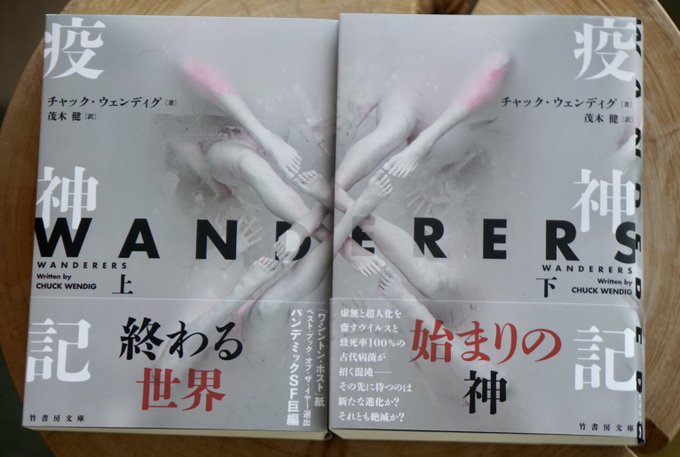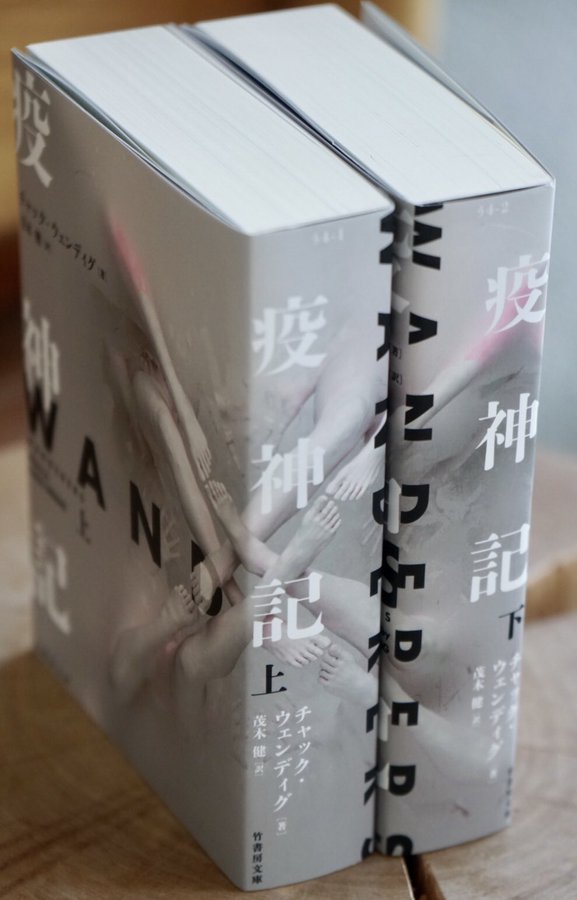
In the last, ohh, six or seven years, I think I’ve done a number of versions of this post — I don’t do it to be redundant, or to try to re-farm the same idea for clicks, because the clicks don’t get me anything. I do it mostly because it keeps happening, because the world grows darker and stranger, and I think, quite honestly, that makes it really hard to Make Stuff. And given that this is my job, and also my joy (and mayhaps it is your joy and/or your job, as well), it feels notable to continue to remind myself how the hell to do this thing in the midst of all this area-of-effect trauma. Because I suspect that anybody with one iota of empathy and a few braincells banging together will likely feel caught in a miasma of anxiety and depression, either bearing the brunt of it and smashing themselves like a soup can in a car crusher, or they’re disassociating so heavily that they feel disconnected from everything that makes them want to write stories or make stuff in the first place.
It’s just hard and weird to make stuff, to write stories, right now.
I mean, it is for me. Maybe it’s not for you. No writer is the same, and some will disassociate themselves right into the writing, and hey, fuck it, whatever works.
But for me it can be tough. And I say that as a very, very privileged person. (Yadda yadda, cisgender straight white dude who has a reasonable successful career in writing, etc. etc.) So I can only imagine what it’s like for the rest of y’all.
So for me, I need to occasionally revisit the work, and more to the point, revisit the reason for the work in order to recharge myself. And I don’t think there’s one reason to urge yourself to write and tell stories, whether that’s in a troubled time or in a time of ease and languor; we all write for a panoply of reasons, some very simple (“I like to do it”) to the complex (“I grew up in an abusive household and as such am almost troublingly sensitive to other people’s moods and behaviors, to the point it helps me put that in fiction and contextualize and control what is essentially complex PTSD”). And multiple reasons can be true at a single time. I write horror because I like it, because I like being scared, I like scaring other people, I enjoy the grotesquerie of it, and also it serves as a most excellent place for me to summon the demons of my anxiety and make them fight (and/or kiss) in a narrative arena of my own design, thank you very much.
I think right now, at this moment in time in troubled history, there’s value too — if, let’s say, you’re having trouble getting yourself to sit in front of the story — in viewing your fiction as a box. It is perhaps a blood-soaked shoebox, or a gilded clockwork box, or a box of keys, a box of teeth, a box of gold, a box of bone, but this box is like a reverse Pandora’s Box. Instead of opening it to let All The Evil out, you’re opening it in order to put stuff inside of it. I think there’s value, at least for me, in viewing my fiction as a receptacle for whatever I’m feeling at the time — both in terms of generic emotions and also specific ones. If I’m angry at something, a story is a place to put that anger. It can be a place to put it, not to be rid of it, but to store it. But it can also be a place to put it in order to explore it, to unpack it, to rewire it. And the same can be true for sorrow, or worry, or joy.
And readers may find what you put there useful in the same, or almost the same, way. They too have things to unpack and unravel and examine. And sometimes they just don’t want to feel alone. The story is a signal to them, an echo they hear that reminds them that they are not the only ones feeling this way. Not to suggest stories are, or need to be, an echo chamber; stories can and certainly should challenge the way we feel, and change the way we think. Storytelling, like all things, can be both. Our work can affirm feelings and they can break feelings and it can do this simultaneously, because stories are not one thing. They are broken mirrors in the author’s funhouse.
Obviously, this is essentially catharsis — it’s not a new idea, the notion that we can use art as a purgative, though here I’m not necessarily suggesting that art be the thing that absolves the feeling or rids us of it, but instead I’m saying that the art can make it useful. Because if you’re like me, a lot of you are sitting around feeling like a Point-Toward-Enemy Landmine ready to pop from the lightest pressure, like a little leaf falling on the wind and landing upon you. Boom.
But maybe all these fucked-up feelings can be of use.
Maybe there’s a place for them.
Maybe they’re decoration.
Maybe they’re tools.
Maybe they’re complex machines, I have no idea. Only you can know that.
As such, maybe right now your writing needs to be a corkboard for all the fucked-up things you’re feeling. That’s okay. If it gets you to the page, then do it. The opposite can be true, obviously: writing can be an escape. And if it is, open that door, that portal, and jump on through and get away from *gestures broadly* all this fucking bullshit.
To echo what I’ve said before, it’s okay if you’re not okay.
Hell, it’s normal if you’re not okay. Normal if you feel abnormal. Feeling broken when things are broken is a natural, understandable, even admirable thing.
And if your writing is a box where you can put all your broken feelings, then do so. It won’t fix the world. It won’t even necessarily make you feel better. But it might feel right, and righteous, and at the very least it’s a place to put all the shards and shattered bits of you for now until you can figure out how to put them all back together later on.
It’s up to you.
Failing all of that, you can always write out of spite.
Spite has never failed me — I have written many words fueled by the churning engine of spite. So much spite! So many targets of spite.
Do whatever gets you to the page.
Open the box.
Put whatever parts of yourself need to go in there.
And find the story that lives in that place.
Be well, frandos.



























